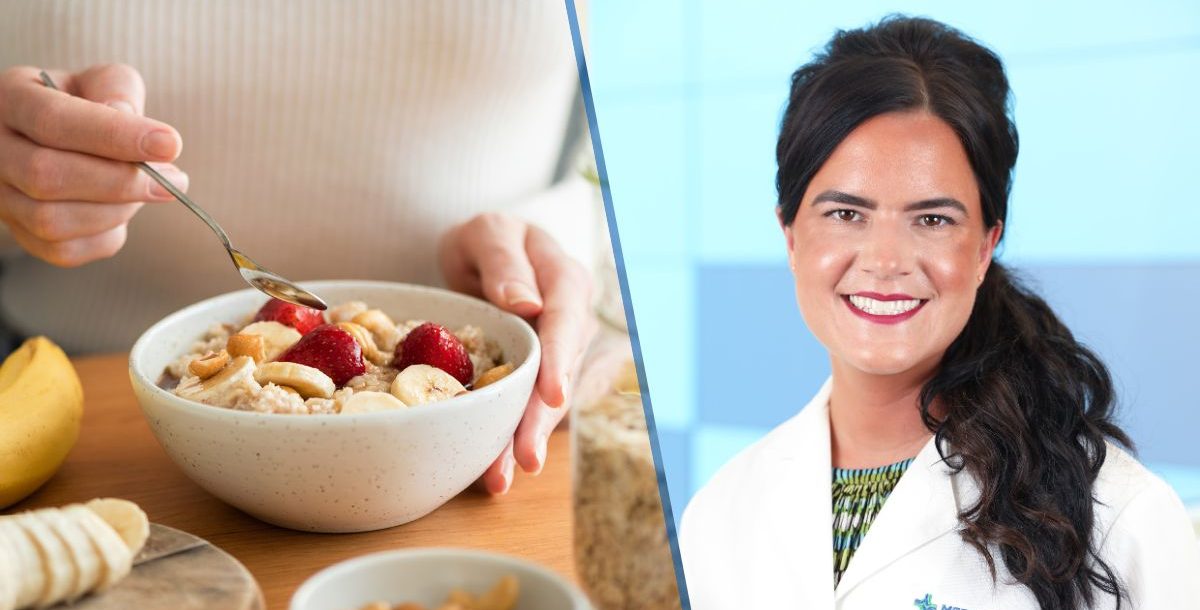If you’ve never donated blood, you may have lots of questions – like what to eat before and after donating blood.
Donating blood is a simple way you can make a big difference in someone’s life. However, an important part of getting ready to donate blood is understanding what nutrition your body needs to do so. Also, what you should avoid eating, too.
What are the best foods to eat before donating blood?
Before heading to a blood donation center, pay attention to what you eat. To help your body absorb iron and boost your iron levels, you want to focus on eating iron-rich foods, such as:
- Beef, pork and poultry
- Beans, lentils and chickpeas
- Seafood (oysters, clams and mussels)
- Iron-fortified breakfast cereal
- Iron-fortified oatmeal
- Eggs
- Green leafy vegetables (kale and spinach)
As a blood donor, you should also eat foods rich in vitamin C. Vitamin C is an antioxidant that helps your body to fight against any infections. It also helps you to recover from wounds. Some examples of food rich in vitamin C are:
- Fruit: oranges, grapefruits, strawberries, kiwis, papayas, raspberries, blueberries
- Vegetables: broccoli, cauliflower, tomatoes, brussels sprouts, bell peppers
It’s important to note that drinking plenty of water before donating blood can help the donation process. Hydration is key to maintaining healthy blood flow and circulation, making the donation more comfortable and efficient. In fact, set a goal of drinking an extra 16 ounces of water prior to your blood donation appointment.
Additionally, avoid alcohol before donating blood, as alcoholic beverages can lead to dehydration and may have adverse effects on you and the process.
How do you replenish your body during and after donating blood?
After your blood donation, focusing on replenishing your body’s nutrient stores is key. You’ll want to avoid strenuous physical activities, like working out or running, and make sure you have a nutritious snack and plenty of fluids to aid in a smooth recovery.
Maintaining a balanced diet post-donation is essential for your body to recover. After donating blood, you may want to prioritize foods rich in iron, vitamin C and B vitamins to support your body’s regeneration of red blood cells.
Replenishing your body’s fluid levels after donating blood is equally important. Just like drinking it before a donation blood, water is just as important after donating blood as well. Also, consuming hydrating foods, like fruits and veggies, can help restore your body’s fluid balance and support the circulation of nutrients throughout your system. Adequate hydration can also alleviate common side effects of blood donation, like dizziness or lightheadedness.
What not to eat after a blood donation
After donating blood, you’ll want to avoid foods hindering your body’s recovery. First of all, refrain from consuming fatty foods, as they can slow down the process as your body absorbs nutrients. You’ll also want to consume foods high in sugar and salt in moderation, as they may not provide the essential nutrients needed for effective recovery.
Again, focus on incorporating whole foods, including various fruits, vegetables, whole grains and lean proteins to support your body’s recovery after blood donation.
Ready to donate? Find a blood drive near you.
Dr. Oberschmidt weighs in
“I encourage anyone who donates blood to remember the process doesn’t end when you leave the blood donation center,” Nina Oberschmidt, DO, a primary care provider at Mercy Health – Rookwood Primary Care, shares. “Nourishing your body before and after donating blood is an important step in supporting your health and well-being. By prioritizing nutrient-rich foods, adequate hydration and mindful post-donation care, you can ensure a successful donation experience and help your body’s recovery. Remember, what you eat before and after donating blood can make a big difference in your overall well-being and the effectiveness of your donation.”
Now that you know what to eat before and after donating blood, sign up for a blood drive or schedule a blood donation appointment in your community today!
Learn about the primary care services we provide at Mercy Health.






